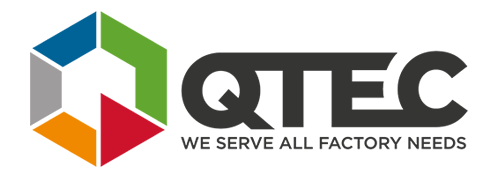Selecting the appropriate drill bit for drilling metals and plastic
Drill bits are available in a diverse array of shapes, sizes, and lengths and come in various materials and coatings. For metals and plastic, drill bits are equipped with cutting edges designed to create holes by removing material while preventing plastic workpieces from cracking. Other specialized drill bits are tailored to tackle specific materials such as glass, tile, porcelain, masonry, concrete, and wood.
Drill bits designed for plastic and metals commonly possess specific properties related to their materials, flute designs, point angles, lengths, and coatings. Different combinations of these features are selected based on their performance in specific tasks and their compatibility with the strength and thickness of the substrate. Below is a brief overview of these features and their typical uses for metals and plastic.
Drill Bit Materials:
- High-Speed Steel (HSS): An economical choice for drilling softer steels and plastic in various maintenance drilling applications.
- Cobalt (HSCO): Contains 5-8% cobalt, offering improved drilling capabilities in harder steel and stainless steel grades.
- Carbide: The hardest and most brittle among drill bit materials, suitable for production drilling in the toughest materials. It should not be used in hand drills or drill presses, as it is specifically designed for drilling into the hardest materials.
Flute Design:
- Spiral: The most prevalent design with a helical groove twisting around the flute.
- Parabolic: Features wider, deeper grooves, enhancing chip extraction during drilling. Parabolic flutes excel in drilling softer materials like aluminum and plastic.
Point Angles:
- 118 degrees: A sharper angle suitable for drilling softer metals, although it may wear faster on harder metals.
- 135 degrees: Self-centering point angle, allowing more contact with the substrate. Drilling on harder metals with 135-degree point angle bits may require a pilot hole to initiate drilling.
Lengths:
- Jobber Length: The most commonly used bit length, combining strength and accuracy for various materials.
- Mechanics Length: Possesses a shorter flute but provides greater strength and rigidity, reducing the likelihood of breakage.
- Extended Length: Ideal for drilling deeper holes with a longer flute and shank.
- Taper Length: Features a longer flute than jobber bits for drilling deeper holes, with a shank shorter than extended-length bits.
- Screw Machine Length: Shorter than jobber and maintenance-length bits, offering increased strength and rigidity.
Drill Bit Coatings:
- Aluminum Titanium Nitride (AITiN): Boasts superior hardness, making it ideal for high-temperature applications and protecting against wear while drilling hard and abrasive materials.
- Black Oxide: A surface treatment reducing friction, increasing speed, and enhancing chip flow. Drill bits coated with black oxide are highly durable and suitable for general-purpose drilling.
- Bright: An uncoated finish ideal for use in plastics and aluminum, with the option to sharpen when needed.
- TiN (titanium nitride): Enables faster drilling, maximizing productivity, and extending drill life.
- TiCN (titanium carbonitride): Harder and more wear-resistant, making it an excellent choice for drilling stainless steel, cast iron, and aluminum.
- TiALN (titanium aluminum nitride): Designed for high-alloy carbon steels, nickel-based materials, and titanium, but unsuitable for drilling into aluminum.
Choosing the appropriate drill bit is of paramount importance for successful projects, taking into account the substrate material, hole depth and diameter, and the volume of work involved. The right choice will extend the life of drill bits and optimize the efficiency of the tools, ultimately delivering precise and reliable results.
CONTACT US
HEAD OFFICE
QTEC TECHNOLOGY CO., LTD.
ADDRESS: 457 BOND STREET ROAD, TAMBOL BANGPOOD, AMPHUR PAKKRED, NONTHABURI 11120 THAILAND
LINE: @qtec-technology
Email: e-sales@qtec-technology.com
TEL: +66(2) 583 8300
Facebook: QtecTechnology


